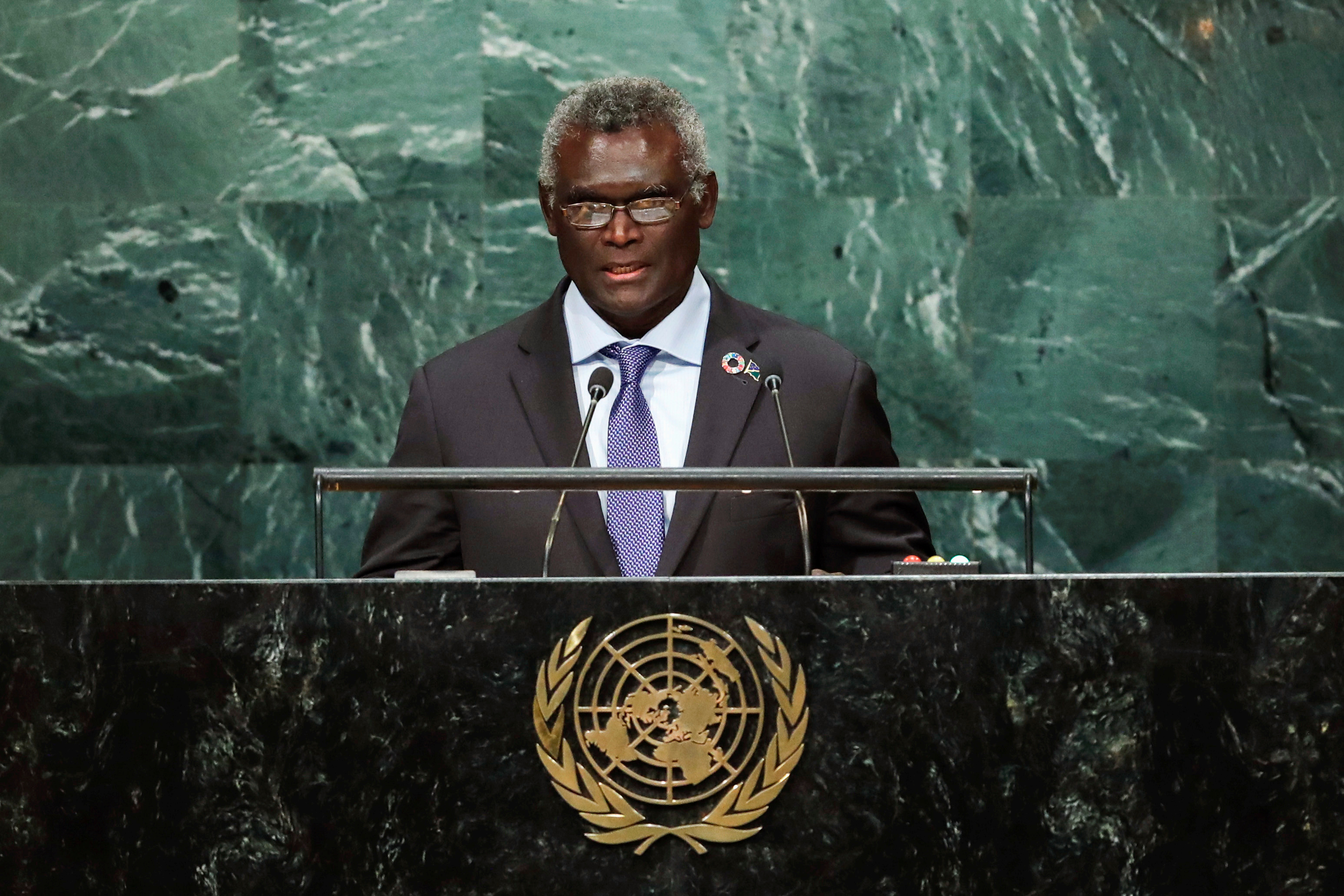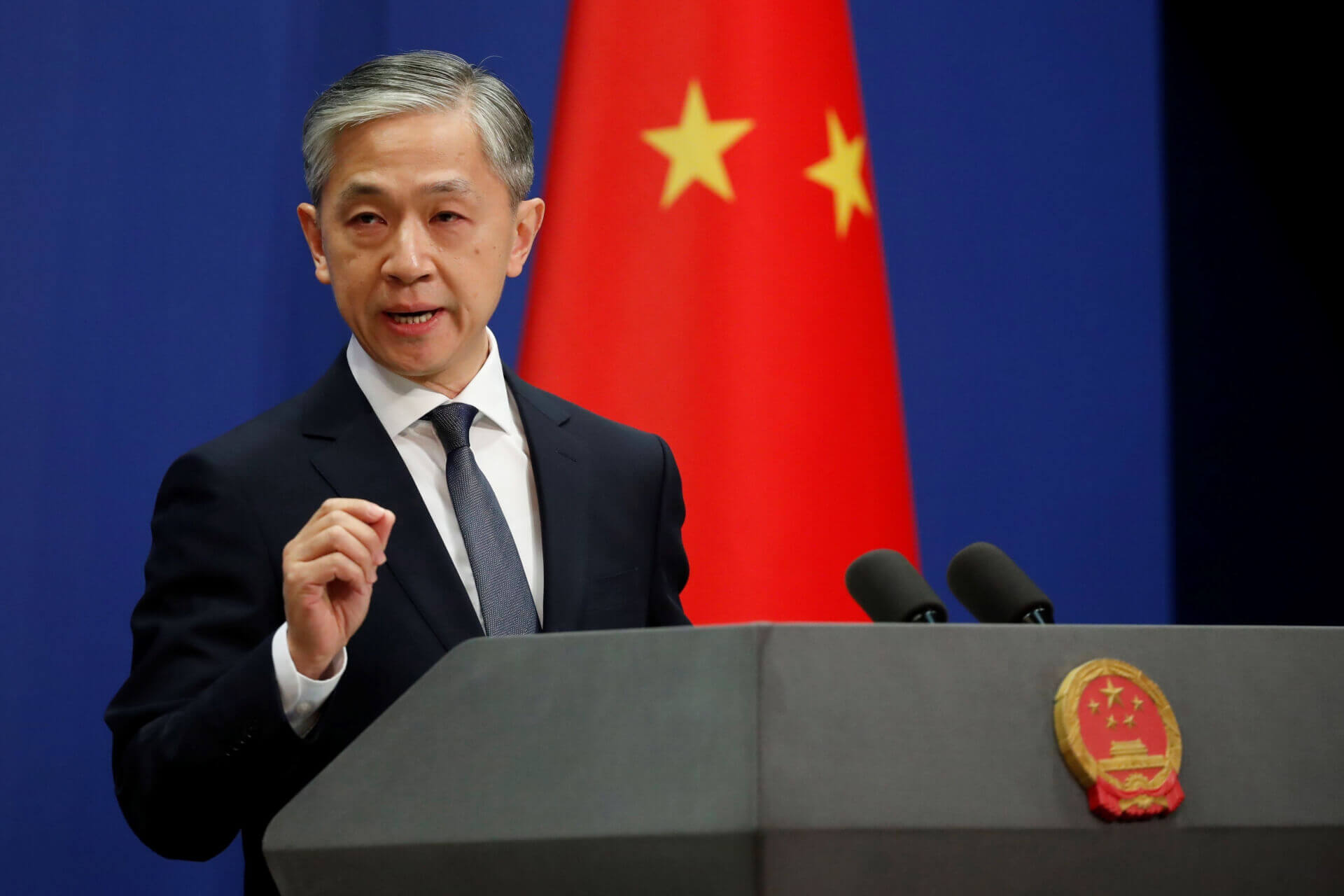South Asia
Responding to India’s decision to restrict the sale of Chinese phones under $150, Chinese Foreign Ministry spokesperson Wang Wenbin said trade and economic relations between the two countries are “mutually beneficial” and thus called on the Indian government to adhere to principles of “openness and cooperation” and ensure “nondiscriminatory investment” for Chinese companies. [FMPRC]
In a call with Emirati President Sheikh Mohamed bin Zayed Al Nahyan, Pakistani Prime Minister Shehbaz Sharif celebrated the United Arab Emirates’ decision to invest $1 billion in “various economic and investment sectors,” paritcularly in energy and infrastructure. [PID Pakistan, APP Pakistan]
Central Asia and the Caucasus
The United States’ (US) mission to the Organization for Security and Cooperation in Europe (OSCE) on Tuesday urged Armenia and Azerbaijan to take “immediate steps” to reduce tensions and avoid further escalation in Nagorno-Karabakh. A US official said Washington is ready “facilitate dialogue” to help achieve a “long-term political settlement to the conflict.” [RFE/RL]
Armenia said on Wednesday that it supports the ‘one-China’ principle following escalating tensions between the United States and China over Taiwan. “Armenia has repeatedly expressed its position that it supports the ‘one-China’ principle. Our position is unchanged,” an Armenian foreign ministry spokesperson said. [Public Radio of Armenia]
East and Southeast Asia
United States (US) House Speaker Nancy Pelosi said on Tuesday that her trip to Taiwan had made Chinese President Xi Jinping act “like a scared bully.” “We’re not going to be accomplices to his isolation of Taiwan…I think he’s in a fragile place, he’s acting like a scared bully,” she said in an interview. [The Straits Times]
A German parliamentary delegation is set to visit Taiwan in the first week of October, German lawmaker Holger Becker told visiting Taiwanese legislators Fan Yun and Lin I-chin on Monday. Commenting on possible repercussions from China, Becker said that “now is the time for democracies to stand together.” [Taipei Times]
Europe
The British Meteorological Office issued a four-day amber extreme heat warning in England and Wales from Thursday to Sunday, with temperatures expected to surge to 35 degrees Celsius. The announcement warned that the alert requires “social and healthcare services to target specific actions at high-risk groups.” [BBC]
The European Union on Tuesday introduced its emergency gas plan, which requires members to curb their natural gas use between August and March by 15% and expand their gas storage to prepare for the upcoming winter. The plan went into force as the bloc attempts to mitigate the impact of Russia’s curbs on natural gas exports, which EU officials view as a “weaponisation” of energy. [DW]
On Tuesday, 13 explosions at a Russian air base in Crimea killed one person and injured five others, including a child. An anonymous senior Ukrainian military official confirmed that Kyiv was responsible for the attack. However, the Russian defence ministry revealed that the incident was due to the “detonation of several aviation munitions.” [The Moscow Times]
Latin America and the Caribbean
World Health Organisation (WHO) spokesperson Margaret Harris on Tuesday condemned attacks on monkeys in Rio Preto in Brazil, after seven monkeys were suspected to be poisoned by people due to a fear of the monkeypox outbreak, which has so far infected more than 2,000 Brazilians. She cautioned against stigmatising any animal or human being, stressing that it may lead to “a much bigger outbreak,” and advised people to follow sanitary measures to protect themselves from the virus. [Telesur]
On Tuesday, firefighters in Cuba successfully quelled the deadly fire at the Matanzas oil storage facility, five days after a raging flame destroyed 40% of the country’s fuel reserves, causing massive blackouts, killing one firefighter with 14 still missing. Four oil tanks were affected by the fire that started Friday evening after lightning struck Matanzas, with Governor Mario Sabines stating that the flames spread like an “olympic torch,” turning each of the four tanks into a “caldron” one after the other. [CNN]

Middle East and North Africa (MENA)
Turkey will resume hydrocarbon drilling in the eastern Mediterranean two years after it halted operations in the contested waters. Ankara said on Tuesday it dispatched the Abdülhamid Han drillship to begin operations 55 kilometres off Turkey’s coast. The area is also claimed by Cyprus and has been a flashpoint for tensions between Turkey, Cyprus, and Greece. [Al Jazeera]
A United States State Department official called the Russia-Iran alliance a “profound threat,” hours after a Russian Soyuz rocket launched an Iranian earth observation satellite into orbit on Tuesday. The official warned that the satellite has “significant spying capabilities” that Russia could exploit. [Anadolu Agency]
North America
On Tuesday, Canadian Deputy Prime Minister Chrystia Freeland denounced police brutality following an alleged altercation between Senegalese diplomat Oumou Kalsoum Sall and Gatineau police in Quebec last week, calling it “entirely unacceptable.” According to the Gatineau Police Service, Sall was arrested after punching an officer and biting another before being tackled to the ground and handcuffed. However, Quebec’s Ministry of Public Security revealed that a police complaint against Sall was dropped “due to the applicable diplomatic immunity,” while Ottawa stated that it “looks forward to a full investigation” of the incident. [CBC News]
United States President Joe Biden ratified Sweden and Finland’s North Atlantic Treaty Organization (NATO) accession protocols on Tuesday, and called on other allies to ratify it “as quickly as possible.” “We’re going to be better able to meet the new challenges of a changed European security environment with two strong, reliable, highly capable, new Allies in the High North,” he noted. [White House]
The United States Department of State announced an additional $89 million in humanitarian demining assistance for Ukraine on Tuesday to “address the urgent humanitarian challenges posed by explosive remnants of war created by Russia’s brutal war of aggression.” The funding will help deploy about 100 demining teams and support a large-scale train and equip project to strengthen the Ukrainian government’s explosive ordinance disposal capacity. [US Department of State]
Oceania
Australian aluminium producer Capral has initiated a review of current anti-dumping measures against Chinese imports of aluminium, according to Australia’s Anti-Dumping Commission. The final recommendations of the investigation will be sent to the Australian Department of Industry, Science and Resources by the end of November. [South China Morning Post]
A bill to postpone the Solomon Islands’ general elections has been submitted to the country’s parliament, as Prime Minister Manasseh Sogavare’s administration has requested an extension of the parliament until the end of next year, which would take it beyond the Pacific Games it will host a month earlier. The move to alter the constitution and extend the current parliament’s term beyond May 2023 has raised concern from opposition politicians. [The Guardian]
Sub-Saharan Africa
The World Health Organisation (WHO) on Tuesday cautioned that nearly 160 million Nigerians are at risk of contracting yellow fever, a “dangerous” viral disease that can result in kidney or liver failure within seven to ten days of infection, with a fatality rate of around 50%. WHO Africa identifies Nigeria as a “high-risk country” and has launched the Eliminate Yellow Fever Epidemics (EYE) Strategy in collaboration with UNICEF and Gavi Vaccine Alliance to eliminate the disease by 2026. [Premium Times]
On Tuesday evening, United States Secretary of State Antony Blinken arrived in the Democratic Republic of Congo (DRC), where he will discuss the violent tensions along its eastern border with President Félix Tshisekedi, before heading to Rwanda later today. Blinken expressed “deep concerns about the violence” and pushed the DRC and neighbouring Rwanda to “resolve their differences.” Human Rights Watch, meanwhile, has urged him to “articulate inconvenient truths” and “warn Rwanda of the consequences of its support for M23” during the visit. [Radio France Internationale]

